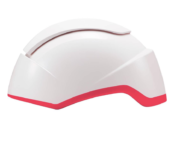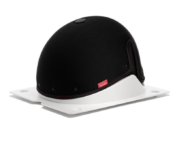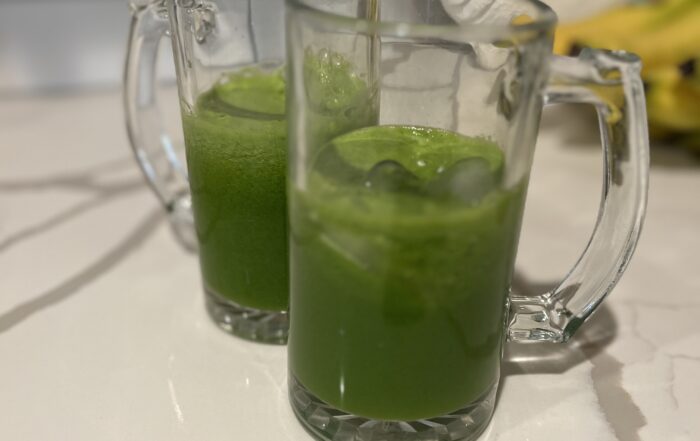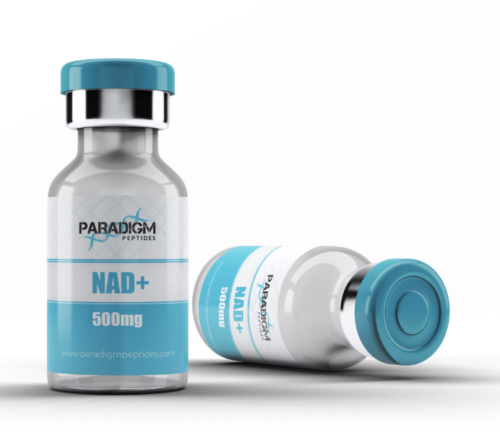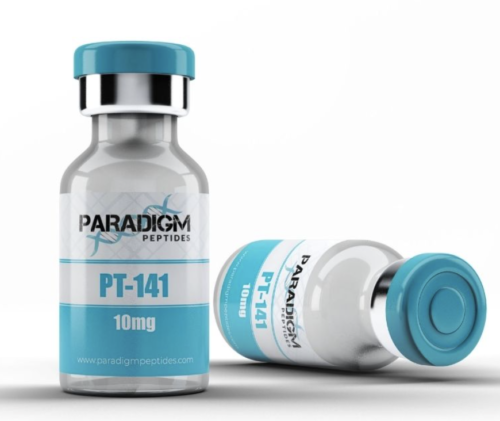How Does Hair Grow?
Hair grows from hair follicles, which are tiny pockets in the skin. Each follicle contains a hair shaft, made of a protein called keratin, that grows from the root (bulb) of the follicle. The hair shaft pushes up and out of the skin, and the growth of the hair is driven by cells at the root of the follicle that divide and produce new tissue. Blood vessels in the scalp provide the necessary nutrients for the hair to grow. Hair growth is influenced by various factors including genetics, hormones, and age.
How to fix hair loss?
In preserving healthy hair growth, genetics does matter. Yet, a number of other variables are also present.
There are steps you can do to encourage your hair to grow and to prevent breaking, even while there isn’t a magic pill or cure that can produce fast growth.
Dietary restrictions can reduce the amount of resources and nutrients required for hair growth.
When your body is under stress from restrictive eating, hair growth quickly stops since it has a low priority compared to other basic activities.
Hair shedding typically lasts for months, even after resuming a healthy diet.
A analysis of studies from 2017 indicates that a lack of essential nutrients may affect your hair’s development and structure. Rapid weight loss might result in diffuse alopecia from a niacin shortage or transient shedding known as telogen effluvium (TE).
Hair won’t grow as well if your diet is really limited, and shedding may happen.
For optimum hair development, a well-balanced diet with enough protein intake is crucial. In general, it is advised to consume 50 grams of protein or more each day.
The same research evaluation also found that a lower protein consumption can result in TE.
Caffeine is well known for its ability to improve energy, and studies have shown that when applied topically, it can also promote hair growth.
According to research, caffeine found in topical products like shampoos and conditioners can stop hair loss just as well as medications. By accelerating cell development and metabolism, caffeine may help with hair growth.
In addition to having a pleasant scent, essential oils might aid in promoting hair growth.
In a tiny study, women with female pattern baldness experienced considerably more hair growth three months after applying pumpkin seed oil topically. Larger research are necessary to further support this finding, though.
Moreover, research from 2015 suggests that rosemary oil may promote hair growth in a manner similar to that of minoxidil, the main component of Rogaine. Again, more investigation is required to support this conclusion.
A study of the literature published in 2020 found that several essential oils, including peppermint, jojoba, and lavender oil, also have promise for halting hair loss.
In addition to being crucial for your general health, certain vitamins, minerals, and fatty acids are also crucial for giving your body the energy required for hair development. These nutrients can include:
- biotin
- vitamin C
- vitamin D
- vitamin E
- zinc
- iron
- omega-3 and omega-6
In certain investigations, persons with the autoimmune hair loss condition alopecia areata were shown to have reduced levels of vitamin D, folate, and zinc.
One 2015 study discovered that consuming omega-3 and omega-6 supplements for six months may assist patients with female pattern baldness prevent hair loss.
Although there is little evidence proving that biotin is effective, a survey of the literature turned up 18 recorded examples where biotin administration led to a clinical improvement in both hair and nail health. To support this, additional study is still required.
The 2016 study looked at how well daily, 4-minute scalp massages worked. The nine males who participated in the study had thicker hair at the end of the 24-week period than they had at the beginning, according to the researchers. These findings still require the support of larger investigations.
Although the study found no discernible difference in hair development, it is believed that massaging the scalp may help widen blood vessels just beneath the surface. In turn, this might result in thicker, stronger hair that is less prone to fall out or get damaged.
You can get a professional scalp massage or indulge in a do-it-yourself massage at home.
Platelet-rich plasma (PRP) therapy is a medical treatment that involves injecting a concentrated solution of platelets from a person’s own blood into the scalp to stimulate hair growth. Here are some ways in which PRP can help with hair loss:
- Promoting hair growth: Platelets contain growth factors that can promote the growth of new hair follicles and stimulate the growth of existing ones. PRP therapy can help increase the number of platelets in the scalp, which can promote hair growth.
- Improving blood flow: PRP therapy can help improve blood flow to the scalp, which can deliver more oxygen and nutrients to the hair follicles. This can help improve the health of the hair follicles and promote hair growth.
- Reducing inflammation: PRP therapy can help reduce inflammation in the scalp, which can be a contributing factor to hair loss. By reducing inflammation, PRP therapy can help promote hair growth.
- Increasing hair thickness: PRP therapy can help increase the thickness of existing hair by stimulating the production of collagen and other proteins in the scalp.
Overall, PRP therapy can help with hair loss by promoting hair growth, improving blood flow, reducing inflammation, and increasing hair thickness. It is important to note that PRP therapy may not be effective for everyone and results can vary depending on the extent of hair loss and other factors.
Your hair can become damaged and break off when exposed to heat from straighteners, hair dryers, and curling irons. While completely avoiding heat styling may not be possible, you might want to try reducing how frequently you use these tools.
Using heated styling equipment at lower temperatures might also lessen hair damage.
Moreover, utilizing a heat-protectant product before using a hot styling tool may considerably lessen hair breakage, according to a 2019 assessment of the studies.
When utilizing heated equipment, heat treatments function by creating a barrier that helps stop moisture loss.
Lastly, super-hot water will weaken your hair, making it dry and brittle. And hair that is dry and fragile is more likely to break.
Minoxidil is a medication that is used to treat hair loss. It is applied topically to the scalp and works by increasing blood flow to the hair follicles and prolonging the growth phase of the hair cycle. Here are some ways in which minoxidil can help with hair loss:
- Promoting hair growth: Minoxidil can help promote hair growth by increasing blood flow to the hair follicles, which can deliver more oxygen and nutrients to the hair follicles. This can help improve the health of the hair follicles and promote hair growth.
- Prolonging the growth phase: Minoxidil can help prolong the growth phase of the hair cycle, which can result in thicker, longer hair. This can also help reduce hair loss by keeping hair in the growth phase for longer.
- Increasing hair density: Minoxidil can help increase hair density by promoting the growth of new hair follicles and increasing the thickness of existing hair.
- Slowing or stopping hair loss: Minoxidil can help slow or stop hair loss by prolonging the growth phase of the hair cycle and improving the health of the hair follicles.
Overall, minoxidil can help with hair loss by promoting hair growth, prolonging the growth phase of the hair cycle, increasing hair density, and slowing or stopping hair loss. It is important to note that minoxidil may not be effective for everyone and results can vary depending on the extent of hair loss and other factors.
Research indicates that the fatty acids that make up the hair’s natural structure can be eliminated by permanent colors. Some dyes may be more damaging than alternatives that are not permanent.
Breakage, breakage, breakage is the result of strong hair agents like bleach. Instead, stay with a darker shade. If you already have blonde hair, accept the overgrowth as you work to lengthen your tresses.
According to clinical studies, applying antioxidants to the scalp can considerably lessen hair loss and enhance the health of the scalp.
Women who used either a leave-in scalp treatment or a shampoo containing the antioxidant piroctone olamine had considerably more hair and healthier scalp conditions than those who used placebo formulations in a single 8-week study.
Similar findings from a 24-week research were obtained. When compared to those who received a placebo, men and women who used a leave-in scalp treatment containing piroctone olamine and other antioxidants lost much less hair.
These compounds, according to researchers, may strengthen and preserve the scalp barrier, preventing hair thinning.
Hair breakage, along with dryness and frizz, can occur when the scales that hold the strands together in your inner hair cuticles fall apart.
To stop this from happening, try doing the following:
- eating a diet rich in hair-strengthening nutrients such as iron, zinc, and folic acid
- applying shampoo mainly to your scalp
- using conditioner
- when towel drying your hair, blotting your hair instead of rubbing it
- letting your hair air dry instead of using a blow dryer, if possible
- avoiding overbrushing
- using a brush with natural bristles only when styling your hair
Regular hair cuts can encourage the growth of healthy hair. By removing split ends, it stops them from growing higher up your strands and damaging your hair.
Contrary to popular perception, regular haircuts won’t cause your hair to grow more quickly. No matter how often you trim it, your hair grows at a rate of around half an inch every month.
To help promote healthy hair when you’re sleeping, try the following:
- Generally speaking, you should sleep for 7 to 9 hours per night. Your body produces less melatonin, a hormone that controls hair growth, when you don’t get enough sleep.
- If you have long hair, use a silk or satin pillowcase to lessen the friction, pulling, and tangling that can lead to hair breakage.
- Avoid sleeping with wet hair. Sleeping on damp hair can make your strands brittle, which increases the risk of breakage or matting.
Stress can be a contributing factor to hair loss, as it can disrupt the normal growth cycle of hair and lead to hair shedding. Reducing stress can help improve the health of the hair and reduce hair loss. Here are some ways in which reducing stress can help with hair loss:
- Promoting healthy hair growth: Stress can disrupt the normal growth cycle of hair and lead to hair shedding. Reducing stress can help promote healthy hair growth by restoring the normal growth cycle of hair.
- Improving blood flow to the scalp: Stress can constrict blood vessels and reduce blood flow to the scalp, which can lead to hair loss. Reducing stress can help improve blood flow to the scalp, which can deliver more oxygen and nutrients to the hair follicles and promote healthy hair growth.
- Reducing inflammation: Stress can increase inflammation in the body, which can be a contributing factor to hair loss. Reducing stress can help reduce inflammation and promote healthy hair growth.
- Improving overall health: Stress can negatively impact overall health, which can also contribute to hair loss. Reducing stress can help improve overall health and promote healthy hair growth.
Overall, reducing stress can help with hair loss by promoting healthy hair growth, improving blood flow to the scalp, reducing inflammation, and improving overall health. There are many strategies for reducing stress, such as exercise, meditation, deep breathing, and getting enough sleep.
According to a traditional Indian method, you can actually stimulate hair growth by pressing your fingers together for 5–10 minutes twice a day.
According to the hypothesis, pressing the nails of both hands together causes the brain to release chemicals that stimulate the stem cells at the base of each hair follicle, essentially stimulating the growth of new hair.
In accordance with reflexology, stroking one’s nails together can effectively heal hair loss. The idea is that you can promote the healing of various illnesses by exerting pressure to specific body areas.
Because the scalp receives the least quantity of blood, improving circulation by inverting your body in a headstand or other yoga inversion pose or by just flipping your hair upside down will stimulate faster, healthier hair development. Blood is the transporter for nourishment to the follicles.
While you’re there, treat yourself to a relaxing head massage using Rosemary essential oil, which is also said to stimulate circulation.
It has been determined via thorough research that this affordable and widely accessible culinary ingredient can aid in even the most severe cases of spot baldness.
In areas where hair has fallen out, onion juice applied straight to the scalp promotes hair regrowth. This is so because onions are rich in sulfur, which aids in the production of keratin in hair.
The method:
- Juice one red onion (do not dilute with water or you will also dilute the sulfur chemical)
- Apply over the scalp
- Leave-on overnight
- Shampoo and condition as normal
Do this once a week to see results
You can encourage healthy hair growth by taking care of your scalp. This specific oil is used to nourish and condition overprocessed, damaged hair as well as to treat dermatitis when applied to the hair and scalp.
It works best when combined with a carrier oil, such as olive, sesame, or coconut oil, due to its sticky nature.
Castor oil and carrier oil should be diluted one to one.
Apply to the hair and scalp and wrap your head in a warm towel for deeper absorption
Leave-on overnight
Repeat twice per month
Vitamins essential for hair growth:
- B7 (also know as biotin)
- B12
- Vitamin C
- Vitamin A
Rather than taking a supplement eat your hair-nourishing vitamins by adding some ingredients to your favorite smoothie:
- Walnuts (rich in B Vitamins)
- Amla fruit or celery (rich in Vitamin C)
- Dark leafy greens (high in A Vitamin)
These foods will supply the vitamins that nourish your follicles and healthy hair.
finasteride is a medication that is commonly used to treat hair loss in men. It works by reducing the levels of DHT (dihydrotestosterone), which is a hormone that can contribute to hair loss. Here are some ways in which finasteride can help with hair loss:
- Reducing DHT levels: Finasteride works by reducing the levels of DHT, which is a hormone that can contribute to hair loss. By reducing DHT levels, finasteride can help slow down or even stop hair loss in men.
- Promoting hair growth: By reducing DHT levels, finasteride can help promote hair growth by prolonging the growth phase of the hair cycle and increasing the thickness of existing hair.
- Slowing or stopping hair loss: Finasteride can help slow down or even stop hair loss by reducing DHT levels and promoting healthy hair growth.
- Improving overall hair health: By promoting healthy hair growth and reducing hair loss, finasteride can help improve overall hair health and increase hair density.
It is important to note that finasteride may not be effective for everyone and results can vary depending on the extent of hair loss and other factors. It is also important to discuss the potential risks and benefits of finasteride with a healthcare provider before starting treatment.
